Al-Sadr rejects a framework proposal and outlines three scenarios for the election phase.
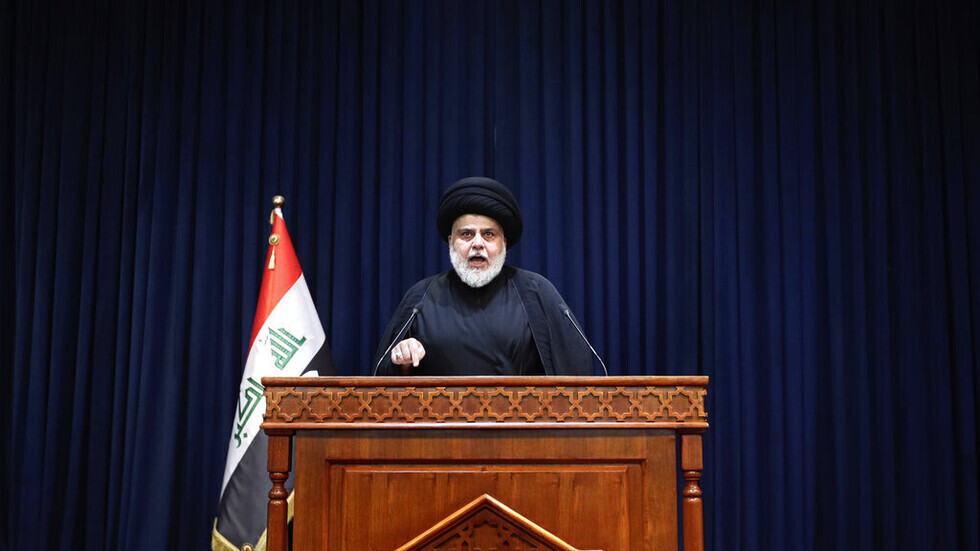 An informed source reported on Tuesday that the leader of the Shiite National Movement, Muqtada al-Sadr, rejected an offer from the Coordination Framework regarding the upcoming elections, noting that he had identified three alternative scenarios to this offer .
An informed source reported on Tuesday that the leader of the Shiite National Movement, Muqtada al-Sadr, rejected an offer from the Coordination Framework regarding the upcoming elections, noting that he had identified three alternative scenarios to this offer .
The source told Shafaq News Agency, “The Coordination Framework sent a personal envoy to al-Sadr a few days ago, carrying an offer that included the framework’s agreement for al-Sadr to nominate the next prime minister, as happened with Mustafa al-Kadhimi, in exchange for not interfering in the electoral process. However, al-Sadr categorically rejected the offer, sticking to his existing options .”
According to a source close to the Sadrist movement leader, “The latter has become increasingly isolated and self-contained in decision-making at the current stage. He no longer involves anyone but a very small circle of confidantes in his political deliberations, numbering no more than the fingers of one hand. His recent tweets and statements reveal a more cautious and clear reading of the Iraqi political scene .”
The source reported that al-Sadr “has three main scenarios for the coming period, the first of which is to take to the streets, re-erect the sit-in tents, and escalate the popular movement, an option that would threaten the holding of the elections on their scheduled date .”
The second bet, according to the same source, is to conditionally approve the elections, while accepting that they will be held on time, while urging his supporters to boycott them, which will lead to a low turnout .
He points out that “according to this reading, Sadr is banking on indirect international guarantees not to recognize the election results if they are weak, especially with the participation of armed factions that are legally and internationally banned. This could open the door to the formation of an emergency government separate from the government of Mohammed Shia al-Sudani, who currently lacks American and Iranian support. This could also lead to the emergence of an alternative figure like Mustafa al-Kadhimi, or even the latter’s return to lead the transitional phase .”
Al-Sadr’s third option was to postpone the elections, betting on sudden and major developments in the region that might force the government and the Coordination Framework to postpone the elections .
A source close to the leader of the Shiite National Movement, Muqtada al-Sadr, revealed the messages al-Sadr wanted to convey in his latest tweet yesterday, Monday .
Yesterday, al-Sadr responded to the threats that were recently circulated, indicating the existence of a plot to assassinate him, by saying: “Such leaks will not be a cause for strife, for we love the homeland and do not want it to be harmed. No one will respond to your strife, for we are counting on the awareness and obedience of the (National Shiite Movement), as we have always known them .”
He added in a post on his personal account: “Everyone should expect, in the remaining days before the election, an escalation by those who love power, those who love positions, and those who salivate over money and positions .”
Regarding these messages, a source close to al-Sadr told Shafaq News Agency, “Sadr’s latest tweet is not just a passing position, but a strategic message carrying an early warning to the entire political system. Al-Sadr wanted to confirm that despite withdrawing from the elections, he still holds the reins of the popular and political initiative .”
According to the source, who requested anonymity, “Al-Sadr also wanted to convey a message that any attempt to marginalize his movement would lead the country into a dangerous impasse. The core of the message was to reject the replication of consensus-based politics and quotas, and to call for a national majority government or an effective opposition, which represents a serious reform option .”
According to him, “The future of the political and public landscape in Iraq depends on the response of other forces: either they side with reform and avoid chaos, or they face pressure from the Sadrist street, which remains the most important card in the Iraqi equation .”
The roots of this escalation go back to “opposition” activist Ali Fadel, who stated during a social media program that he possessed information about State of Law Coalition MP Yasser Sakhil’s intention to assassinate al-Sadr during his visit to his father’s shrine in Najaf using a drone .
Following this, Basra Governorate witnessed security tensions last night, following the deployment of members of Saraya al-Salam, the armed wing of the Shiite National Movement led by al-Sadr, in light of what Ali Fadel had stated .
In response, MP Yasser Al-Maliki issued a statement denying the accusations, describing the program’s content as “slander and falsehoods aimed at creating strife,” and affirming his intention to prosecute “everyone behind these allegations . ”
Shafaq.com

 The global gold market has been witnessing a rapid upward trend since the beginning of 2025, driven by geopolitical tensions and declining confidence in financial markets, making the yellow metal the primary safe haven for capital. Iraq, for its part, is being affected by this trend in two contradictory ways: the first is positive for the Central Bank’s official reserves, and the second is negative for the local market, where the price of a mithqal has jumped to 765,000 dinars, an unprecedented figure that reflects a deepening social and economic crisis, according to modern political approaches.
The global gold market has been witnessing a rapid upward trend since the beginning of 2025, driven by geopolitical tensions and declining confidence in financial markets, making the yellow metal the primary safe haven for capital. Iraq, for its part, is being affected by this trend in two contradictory ways: the first is positive for the Central Bank’s official reserves, and the second is negative for the local market, where the price of a mithqal has jumped to 765,000 dinars, an unprecedented figure that reflects a deepening social and economic crisis, according to modern political approaches.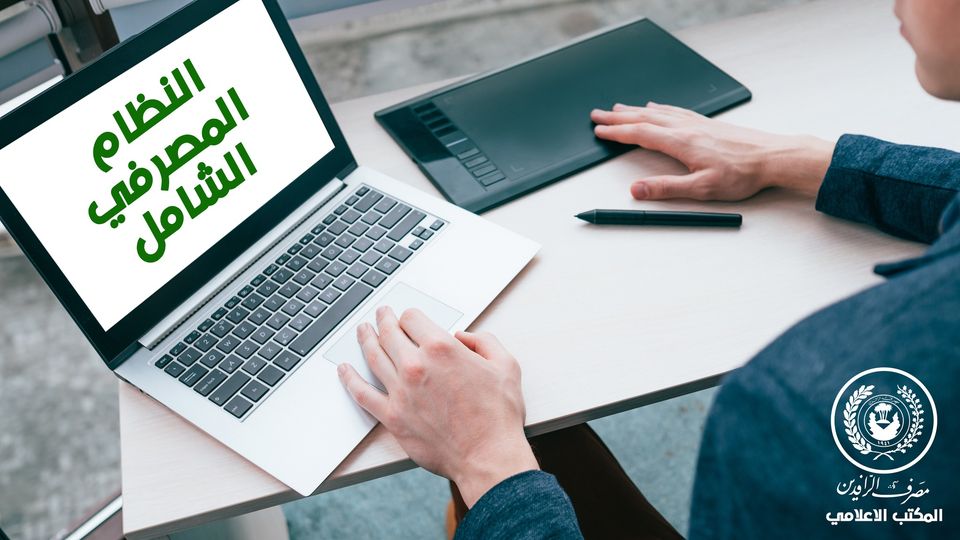 Rafidain Bank announced on Tuesday that 81 branches have joined the comprehensive banking system. The bank stated in a statement that “81 branches have joined the comprehensive banking system, following the entry of the Hudhayfah bin Al-Yaman branch and the General Secretariat of the Council of Ministers branch into the integrated electronic service.”
Rafidain Bank announced on Tuesday that 81 branches have joined the comprehensive banking system. The bank stated in a statement that “81 branches have joined the comprehensive banking system, following the entry of the Hudhayfah bin Al-Yaman branch and the General Secretariat of the Council of Ministers branch into the integrated electronic service.” The Anti-Money Laundering and Counter-Terrorism Financing Office of the Central Bank of Iraq received 2,723 reports and requests for information during the first six months of 2025.
The Anti-Money Laundering and Counter-Terrorism Financing Office of the Central Bank of Iraq received 2,723 reports and requests for information during the first six months of 2025. Prime Minister Mohammed Shia al-Sudani stressed the need to transition the development road project from technical and administrative aspects to practical implementation, while announcing that the next phase will witness the commencement of actual implementation of the road’s path.
Prime Minister Mohammed Shia al-Sudani stressed the need to transition the development road project from technical and administrative aspects to practical implementation, while announcing that the next phase will witness the commencement of actual implementation of the road’s path.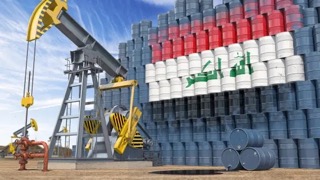 Abdul-Baqi Khalaf, advisor to the Ministry of Oil for energy affairs, confirmed on Monday that the introduction of renewable energy is a complementary step to fossil fuels, while pointing out that Iraq consumes about a quarter of a million barrels of crude oil per day, and that clean energy will provide this amount for export. Khalaf told the official agency that “the move towards introducing renewable energy in Iraq represents an important step,” noting that “this shift does not mean abandoning fossil fuels, but rather is complementary to them.”
Abdul-Baqi Khalaf, advisor to the Ministry of Oil for energy affairs, confirmed on Monday that the introduction of renewable energy is a complementary step to fossil fuels, while pointing out that Iraq consumes about a quarter of a million barrels of crude oil per day, and that clean energy will provide this amount for export. Khalaf told the official agency that “the move towards introducing renewable energy in Iraq represents an important step,” noting that “this shift does not mean abandoning fossil fuels, but rather is complementary to them.” An informed political source revealed, on Sunday, the involvement of supporters of the leader of the Progress Party, Mohammed al-Halbousi, in systematic operations to purchase voter cards in Shiite-majority areas in Baghdad and a number of other governorates, in exchange for large sums of money, with the aim of destroying them and preventing their owners from casting their votes in the upcoming elections.
An informed political source revealed, on Sunday, the involvement of supporters of the leader of the Progress Party, Mohammed al-Halbousi, in systematic operations to purchase voter cards in Shiite-majority areas in Baghdad and a number of other governorates, in exchange for large sums of money, with the aim of destroying them and preventing their owners from casting their votes in the upcoming elections. he upcoming elections are no longer merely a constitutional requirement, but have become an arena for extensive spending and foreign maneuvering led by Prime Minister Mohammed Shia al-Sudani in his quest for a second term. These policies reveal a dangerous deviation in the direction of governance, where personal interests are prioritized over the concerns and daily crises of Iraqis.
he upcoming elections are no longer merely a constitutional requirement, but have become an arena for extensive spending and foreign maneuvering led by Prime Minister Mohammed Shia al-Sudani in his quest for a second term. These policies reveal a dangerous deviation in the direction of governance, where personal interests are prioritized over the concerns and daily crises of Iraqis.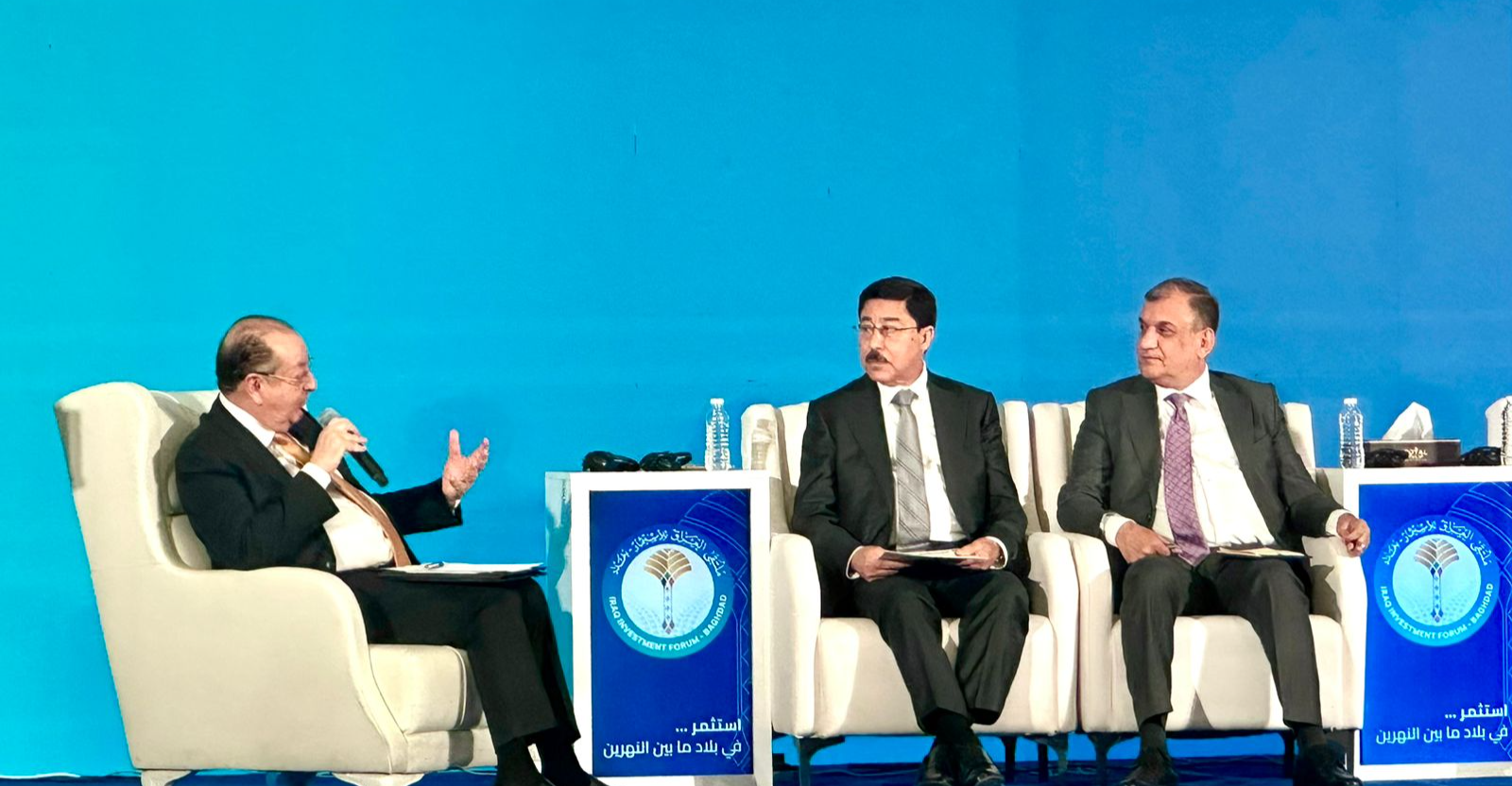 Central Bank Governor Ali Al-Alaq denied on Sunday any plans to change the dinar’s exchange rate against the dollar.
Central Bank Governor Ali Al-Alaq denied on Sunday any plans to change the dinar’s exchange rate against the dollar.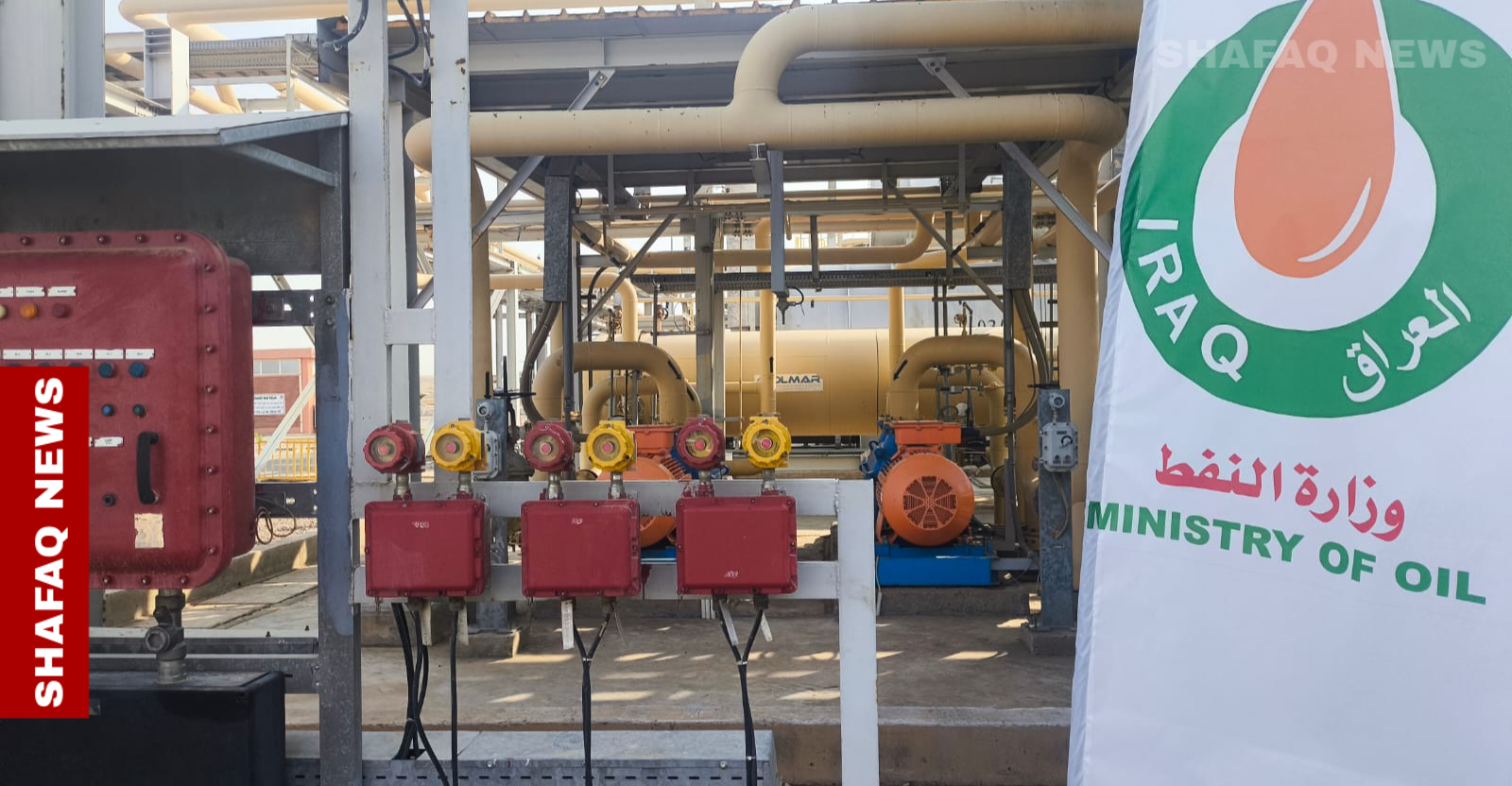 Iraq’s oil exports during the first eight months of 2025 amounted to more than 800 million barrels, according to statistics announced by the State Oil Marketing Organization (SOMO) and reviewed by Shafaq News Agency.
Iraq’s oil exports during the first eight months of 2025 amounted to more than 800 million barrels, according to statistics announced by the State Oil Marketing Organization (SOMO) and reviewed by Shafaq News Agency.